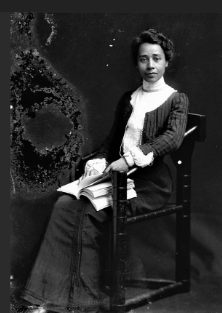Today is a special day. We’re celebrating the incredible inductees into the North Carolina Literary Hall of Fame for 2024! Let’s take a moment to honor some truly remarkable figures: Joseph Bathanti, Anna Julia Cooper, Kaye Gibbons, Lenard Moore, and Ron Rash.
Each of these individuals has left an indelible mark on the literary world, and I can’t wait to share their stories with you. If you’re a lover of words, stories, and the power of literature, stay with me for the next few minutes, because I have something truly special.

Joseph Bathanti
First up, we have the exceptional Joseph Bathanti! 🖊️ Born in Pittsburgh but deeply rooted in North Carolina, Joseph is not just a poet—he’s an emblem of our region’s stories. His work captures the essence of what it means to be a part of this rich landscape.
Known for his profound narratives that weave together personal and communal experiences, Joseph’s work often reflects the heart and soul of Appalachia. He’s not just a poet and novelist; he’s also an educator, mentoring countless young writers. His collection of poetry, *This Metal, you’ll find expressions of community that draw the reader in. His commitment to storytelling is evident, and the way he captures the beauty and struggle of life in his writing resonates deeply with readers.
During his time at Appalachian State University, Bathanti became a beloved figure, recognized for his engaging teaching style and personal investment in his students’ success. He believes that every story deserves to be told and understood, and that’s a powerful ethos to carry. His commitment to nurturing young writers has sparked countless literary careers, fostering a community that values creativity, empathy, and above all, authenticity.
Joseph Bathanti’s contributions to literature and education serve as a powerful reminder: storytelling has the potential to change lives. His influence extends beyond pages; it touches hearts and minds, creating a legacy of writers equipped to share their truths.

Anna Julia Cooper
Now, I would like to take you on a journey—a journey through time and words—exploring the monumental impact of one of the most underrated figures in literary history: Anna Julia Cooper. Now, if you haven’t heard of her, by the end of this article, you’ll understand why her work deserves a front-row seat in discussions about literature, feminism, and social justice.
Anna Julia Cooper was born in 1858 in North Carolina, a time when African-American women faced insurmountable odds. She was born into slavery, yet she rose to become a pioneering scholar, educator, and author. One of her most significant works, *A Voice from the South*, published in 1892, is a foundational text in both African-American literature and feminist discourse. But let’s dive a little further into why her voice was a game-changer.
Cooper was not just writing for herself; she was writing for a community—the community of marginalized women and African-Americans at a time when their voices were silenced. In *A Voice from the South*, she argues fiercely for the higher education of black women. Her assertion that “the fate of the race is determined by the character of the women” resonated loudly then and echoes profoundly today. Can you imagine the courage it took to put those words onto paper in the 1800s?
When I read her words, I’m reminded of how often marginalized voices are sidelined in broader narratives. Cooper masterfully illuminated the intersection of race, gender, and class, a concept that continues to be crucial in contemporary discussions. Her works provided a blueprint for future generations of writers and thinkers, urging them to confront these intersectional issues in their narratives.
Fast forward to today— Her ideas transcends time and continue to empower and challenge us in various spheres, from literature to politics.
Cooper’s impact isn’t just historical; it’s deeply relevant now. As we advocate for equity in the workplace and fight systemic injustices, Cooper’s voice serves as a guiding light.

Kaye Gibbons
Next let’s step into the brilliant world of Kaye Gibbons—an iconic voice in Southern literature who truly embodies authenticity. If you haven’t had the chance to read her work yet, stick around because I’m about to share how her writing resonates not just in the world of literature, but in the very fabric of our lives.
Born and raised in North Carolina, Kaye Gibbons has woven her Southern roots into every page, crafting narratives that connect deeply with readers.
One of her notable works, ‘Ellen Foster,’ is a poignant coming-of-age tale that tackles themes of resilience and hope amidst hardship. Have you ever read a book that felt so personal, it was like the author was telling your own story or someone close to you? That’s the power of Kaye Gibbons; she gives voice to our own experiences and emotions.
Through Kaye’s characters, we see a reflection of our vulnerabilities and triumphs. She doesn’t shy away from tackling tough subjects like family dysfunction, mental health, and the search for belonging. And that’s what I admire most—her raw honesty.
Her work isn’t just about the South; it’s about the universal truths we all navigate daily. She has a way of pulling you into her world, inviting you to experience the bittersweet tensions of life that many of us grapple with.
Now, why is this important for us today? In a world increasingly shaped by social media and rapid-fire communication, Kaye Gibbons reminds us of the significance of storytelling. It’s not just about sharing experiences; it’s about connecting deeply, fostering empathy, and understanding one another on a fundamental level.
I urge you to explore Kaye’s work. Let her stories inspire you to appreciate the nuances of your own life—and perhaps even motivate you to share your own story.

Lenard Moore
Let’s give a standing ovation to Lenard Moore, whose poetic voice resonates beyond the page. As a visionary in the world of African American poetry, his contributions have cultivated a rich tapestry that honors and elevates voices often left unheard.
Lenard is a poet, educator, and a prolific figure in the literary community. His work resonates with the essence of human experience, cultural identity, and a deep sense of place, particularly rooted in the African American experience. But it’s his unique contributions that make him an unforgettable voice in literature.
What’s remarkable about Lenard’s journey is how he intertwines personal narratives with broader cultural themes.
As the first African American poet laureate of North Carolina, Lenard Moore isn’t just writing poetry; he’s creating a movement. His works, like ‘The Open Eye’ and ‘The State of Blackness,’ challenge readers to confront the complexities of race, identity, and the power of language. Through his poetry, he invites us to see the world through a different lens—one that is both personal and universal.
Lenard’s dedication to education and mentorship is where his impact truly magnifies. He’s taught countless students the power of their voices, encouraging them to express authenticity through writing. And let’s face it: in a world that often stifles individuality, that’s a gift that keeps on giving. His contributions extend beyond poetry; he’s a community builder. He has organized literary festivals, workshops, and events that create space for dialogue and connection. In doing so, he cultivates an environment where stories can flourish, and cultural heritage can be celebrated.
So, what can we learn from Lenard Moore? That each of us has the potential to impact our own communities, to nurture future generations of thinkers, creators, and storytellers. It’s a reminder that literature isn’t just about words; it’s about building bridges, fostering empathy, and celebrating our shared humanity.

Ron Rash
You know, as I sit here surrounded by the works of great authors, I can’t help but think about how literature shapes our understanding of the world. And when it comes to capturing the essence of the human experience, Ron Rash stands out like a beacon of clarity and insight.
A true storyteller whose narratives explore the complexities of human nature. His prose is both gripping and lyrical, often reflecting the rich textures of Appalachian life. Ron’s work has gained recognition not only for its artistry but also for its commitment to authenticity—depicting the struggles and triumphs of everyday people.
Born and raised in the heart of the Appalachian region, Rash’s upbringing profoundly influences his work. His poetry, novels, and short stories are heartfelt love letters to the landscapes, feelings, and histories that define the American South.
Have you ever read a piece of literature that made you feel seen? That’s what Ron Rash does. His characters struggle, love, and endure in ways that resonate deeply with many readers. In his novel “Serena,” for example, we are introduced to a fierce woman embedded in a world of ambition and ruthless destruction. It’s a portrait of power and desperation, painted against the backdrop of the Appalachian timber industry during the Great Depression.
What I find remarkable is how he entwines history into his storytelling. He doesn’t just create fiction; he provides a cultural context that enriches our understanding of regional complexities. He explores themes of love, loss, and the impact of wilderness, while also addressing broader issues like economic strife and sustainability. He encourages readers to reflect on their surroundings and the histories they inhabit.
Each story beckons readers to confront their understanding of joy and sorrow, sparking conversations about morality, environment, and humanity.
Let’s talk about his impact on the literary community. Ron Rash’s voice has not only engaged readers but also inspired budding writers around the globe. His dedication to authenticity encourages aspiring authors to honor their roots and create work that mirrors their lived experiences. He demonstrates that writing is a form of activism, a way to shine a light on local issues and cultural narratives often overlooked.
Ron Rash’s work serves as a reminder that literature has the power to slow us down and spark introspection. It beckons us to contemplate the stories we carry within us and encourages us to listen to the often-unheard voices around us.

Literature has this incredible power to transport us to new worlds, challenge our perspectives, and even change our lives.
Thanks for joining me in this celebration of creativity, connection, and storytelling! Remember, every great book begins with a single word. Keep reading, keep dreaming, and let’s continue to uplift the power of literature together.
1 Thessalonians 5:16-18 – Rejoice evermore. Pray without ceasing. In everything give thanks: for this is the will of God in Christ Jesus concerning you.




